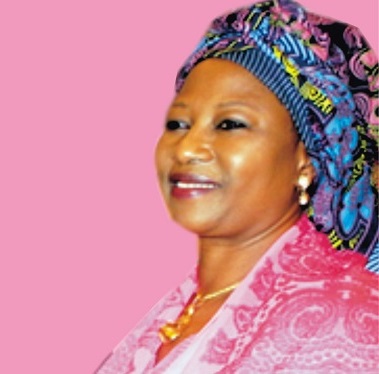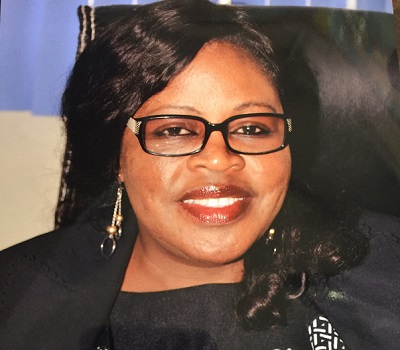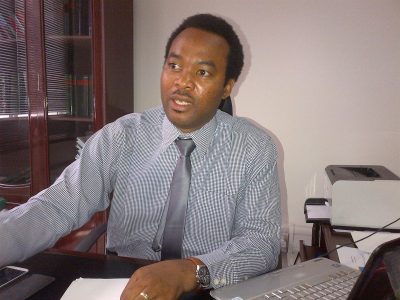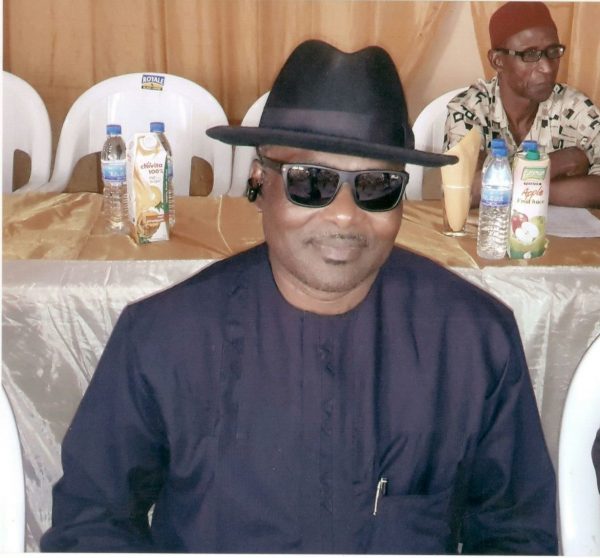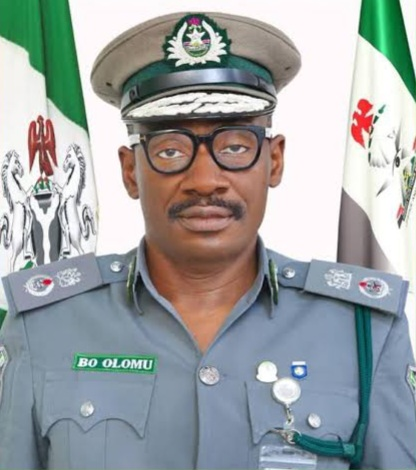I CARE INTERVIEW
2017: Let’s Build On 2016 Transport Sector Achievements- Barr. Orakwusi

Barr. (Mrs.) Margaret Orakwusi is the Managing Partner/ CEO of Oyema & Co. She is the Chairman of Ship-Owners Forum and also a former President of the Nigerian Trawlers Owners Association. She is renowned maritime lawyer and shipping veteran. In this interview with MMS Plus Margaret sets the agenda for the transport sector in 2017, whilst appraising the sector in 2016 and highlighlighting some of the challenges facing trawlers in Nigeria.
Excerpts:
What is your assessment of the Nigerian maritime sector; what are the major challenges, is the nation making progress?
Nigeria is a maritime nation by the scope of what we have, but is the nation really attracting infrastructural development, expanding in operations and attracting the cargoes that should come to the country. Is there diversion of cargo to other neighbouring countries, if so, what are the reasons? How do we attain the status of being a hub of maritime activities in West Africa? The truth is that we have everything to achieve that. These are some challenges but we have to improve on the quality of services in the maritime sector. We have to develop and maintain good infrastructure at the nation’s ports. Another issue is the ports concession contracts; it is not good to only focus on the revenue. There are other aspects. There must be total developments, creation of employment, training, etc. Of course, when you do all these, the revenue factor should also be there but it shouldn’t be prioritized as the first on the list.
The Managing Director of the Nigerian Ports Authority (NPA) has reiterated that port concessionaires must pay in dollars despite the tough measures as a result of the changes in the cost of the agreement entered in 2006. Should she rescind that decision?
The good thing is to ensure that there is dialogue between both parties. When there is disagreement, it is the right time to come to a roundtable to talk and put the interest of the nation ahead of any other party. When you look at this issue, what are the exchange rates now? If by insisting on the agreement you see a lot of businesses collapse, who stands to lose? Remember we need to develop businesses and encourage them to grow hence the need to create time for interactions.
Most times, government agencies may think that the private sector investors are smiling to the bank and because of that they want to increase their revenue but it doesn’t always appear so in our books. If NPA keeps charging in dollars and the free fall of the naira continues, very soon there would be no businesses to even charge in naira. These are considerations that demands that all stakeholders come together to discuss, open the books and decide what is the best for Nigeria.
For instance, when it comes to the fishing business, it is regulated by the Ministry of Transport and the Ministry of Agriculture. Ministry of Transport is in charge of vessels and providing good platforms for the vessels to operate. The maintenance of these vessels and maritime security is also the onus of the Transport Ministry. However, the Ministry of Agriculture is responsible for the issuance of the fishing licenses. We know the state of the economy at the moment and we understand the government’s drive to increase the activities in agriculture, but what we being slammed with as a New Year gift? The fishing license per trawler was increased from 120,000 to 500,000.What is the rationale behind such increment? At times while the government intensifies its drive towards revenue generation, it also has to consider the survival of the businesses being levied indiscriminately. It is shocking that the federal government can make such increment on fishing license without being considerate. These are reasons why I believe that government agencies and other stakeholders have to work together to know the survival strength of the businesses.
When you push and levy your investors so much, they get out. You know that the investments in the maritime sector moves with the ocean, when the push is too much we begin to experience diversion of cargoes to neighbouring ports like we are witnessing today. If you make it too expensive for investors to operate here they move to the next country and you lose in revenue, employment and development. These are some of the issues that have to be discussed when the private sector meet with the government agencies. However, irrespective of which side one belongs to, it is our collective responsibility to make sure that the maritime sector of this nation develops.
As the Chairman of the Ship-owners Forum, can you tell us the level of progress that has been achieved in the attainment of national fleet?
We have to appreciate the efforts of the Honourable Minister of Transportation, Rotimi Amaechi for deeming it fit to encourage the development of a national fleet. Hitherto, we have been complaining that Nigeria generates a lot of cargo since we are import and export dependent yet Nigeria doesn’t partake in the freight earnings for the cargoes we are generating. Rotimi Amaechi has led the efforts to reverse that trend, however, the efforts also recognizes the fact that Nigerian investors may not be able to muscle up funds to own sufficient ships that would make the difference.
Another aspect is the training of seafarers; we have been busy training our young ones abroad without provision for seatime which makes them unemployable. How do we cope with this? These are some of the advantages of the national fleet. Nigeria exports its crude oil on FOB and we can’t begin to shout that we want to partake when we don’t have the ships. The best thing to happen now is that we are being driven into having a national fleet. We shouldn’t just say we want a national fleet, therefore purchase dead ships. We want world class ships that can attract the patronage from the people that have the goods. We shouldn’t only depend on government cargo but other cargoes too. If we have attractive equipments and the cost is acceptable, then we would attract patronage. There are no sentiments about this; it is an internationally recognized business.
We need a national fleet and the Minister has just provided an enabling environment for the private sector to thrive. Some people have said so many negative things about the maritime industry but I can excuse them because they are ignorant of some of the developments. However, if you study what is happening, you would commend the efforts of the Minister and the committee members that have sacrificed their time and resources in order to put this into motion. I think we are on the right track as this is going to be driven by private investors; the private indigenous investors would own 60% while the foreigner investors would own 40%. Other groups can also come together to put resources together in order to attain the fleet status. This is what the idea is about.
In some other countries, like Brazil and Malaysia for instance, their national petroleum corporations have over 100 vessels; shouldn’t the Nigerian National Petroleum Corporation (NNPC) be encouraged to do the same?
Of course, we could; but you know the general feeling in this country about government investments. Most economies all over the world are driven by the private investors. Private investors have proven to be good managers; they employ more and bear more risk than the government. Generally, private investors are better business managers than the government. Capitalism is one of the best ways to develop an economy and there is no running away from that. I believe that when we empower the private sector to really play its role Nigeria, it would yield results that would make everyone happy. Jobs would be created and the general standard of living of the populace would be enhanced. I get so worried most times because over 60% of Nigeria’s population is made up of people who are less than 21 years. This is worrisome; hence we must do everything possible to ensure that the necessary employment is available. We shouldn’t only depend on agriculture. The entertainment industry is doing very well but I believe that maritime holds the key to solving the unemployment rate in this country.
The maritime sector is also a better alternative to the nation’s over-dependence on oil. Maritime is sector that accommodates all professions. There are jobs for everybody; surveyors, doctors, bankers, insurance companies, lawyers, agents, etc. The maritime sector could also generate a lot of revenue if properly managed. If we are able to offer good services, develop the ports, increase traffic at our ports, create deep seaports, and attain the status of a hub of maritime activities in West Africa; then the revenue would flow in for the government as well as the private investors. However, we need to drive all these and make sure that we achieve them before we start talking about increased revenue. You sow a seed, water it before you reap; otherwise you would have nothing because the seed would not germinate. We need to think straight when it comes to the growth of businesses in this country, especially in the maritime sector.
The Minister of Transportation, Hon. Rotimi Amaechi has spent over one year in office. He has brought a new leadership style and dynamism not seen in the transport sector in a while. How would you appraise his performance?
In just one year, Rotimi Amaechi has been able to work with the private sector. He has been able to bring everybody together to seek advice on the best ways to address issues. He has been open-minded and keen to seek advice on how to manage the agencies under his ministry. The reforms and restructuring in these agencies have been championed by the stakeholders and this is a very good approach.
Amaechi has taken up the restructuring of the Maritime Academy of Nigeria (MAN) Oron which is very important because the development of that Academy would ensure Nigeria saves some of the foreign exchange used to train seafarers abroad. We employ fresh graduates that we need to send on short course trainings and most times we send them outside the country. With the restructuring of MAN Oron, we can send our employees there.
The Minister has this zeal for accountability and this is something commendable. He is not frivolous with spending; that is why he questioned a lot of projects like the money spent by NIMASA on the acquisition of land for the Nigerian Maritime University (NMU). He has been bold to address several issues. If you have a good leader who is honest and upright- you just have to follow him and his good qualities would rub off you. He is a man of distinction. He believes in getting the job done and he says things just the way they are. We are blessed to have someone like him as a leader. In my opinion, Amaechi has done a lot and he deserves to be celebrated.
In 2016, the Transport sector made some modest achievements with regards to the agreement signed for the development of railway, similar development was reached for the establishment of a national fleet, Inland Container Depots also witnessed some sort of advancement, etc. What agenda would you set for the transport sector in 2017?
We also witnessed the restructuring of the Nigerian Maritime Administration and Safety Agency (NIMASA). There are several things which would soon start yielding desired results, but it is good to highlight some of the achievements of the Minister of Transportation within just one year.
I would like to see more work done on the nation’s port infrastructure as well as the port access roads. I want more activities taken away from the ports. The development of railways should also begin swiftly.
NIMASA plans to make its zonal offices and other out-stations more active, this is commendable because it would make operations easier. I’m aware that the Minister also has plans to provide maritime security very soon, although the seas have been relatively safe and you can notice that more trawlers are returning to Nigeria to do their businesses.
So, 2017 is a year where I would like to see more improvement in all these areas.

